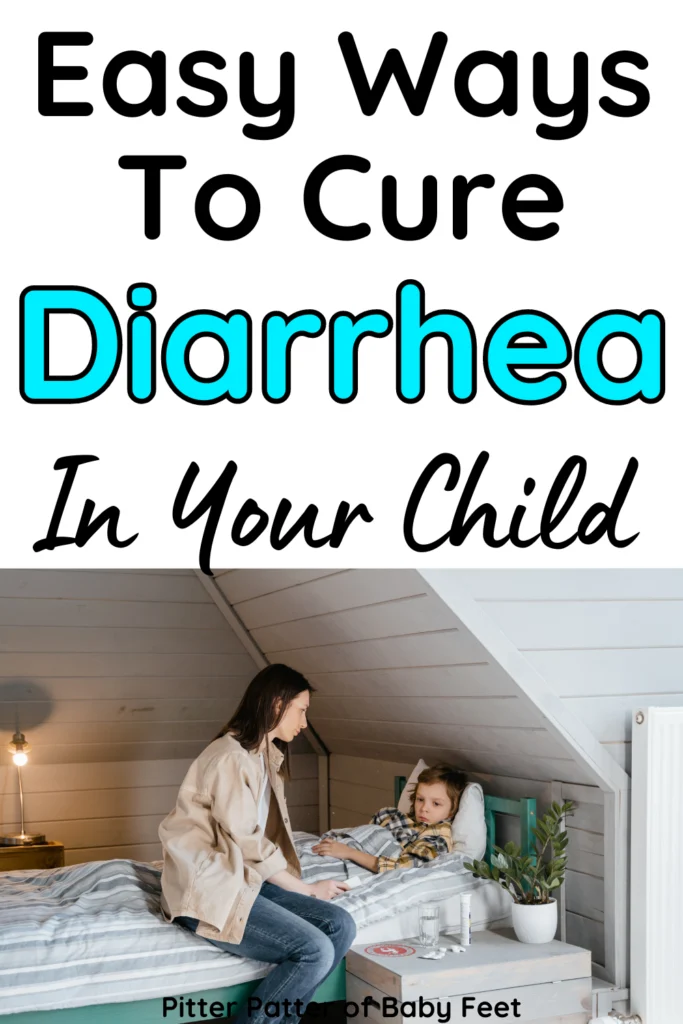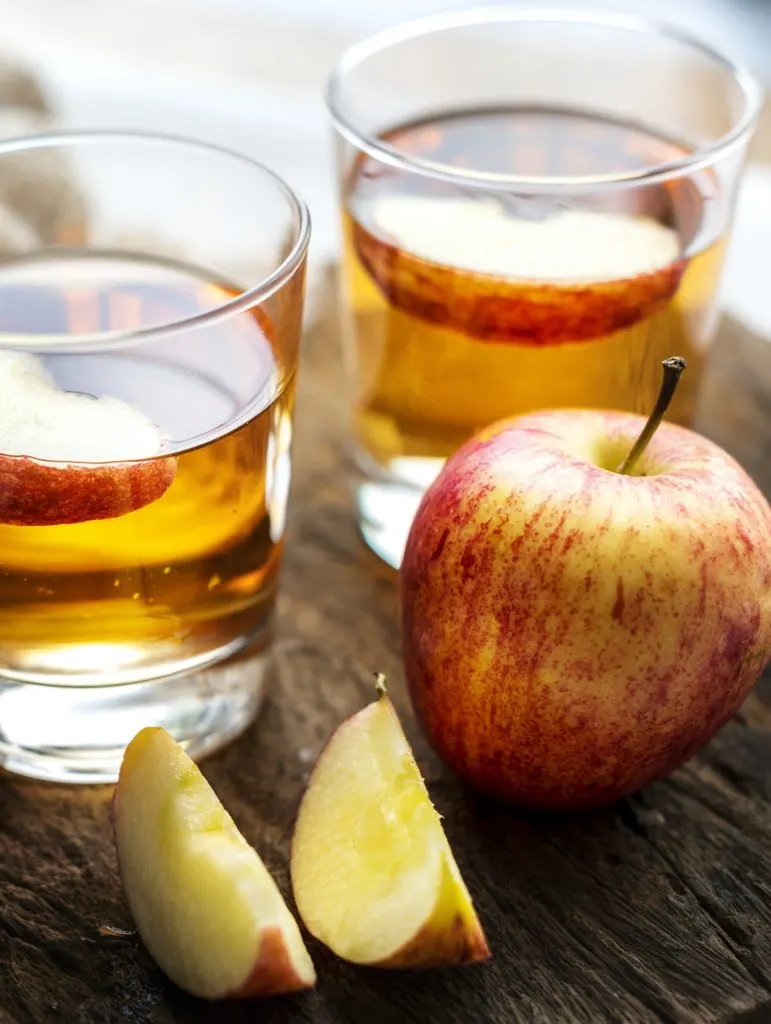
A child’s digestive system is sensitive. It doesn’t take much for children to suddenly develop diarrhea. For most children, diarrhea is short-lived and only lasts a day or two.
But sometimes bouts of diarrhea last longer.
Diarrhea in children can quickly go from mild to severe. If proper care is not taken, diarrhea becomes dangerous due to dehydration.
To prevent the risk of dehydration, it’s important to recognize the symptoms and possible causes of diarrhea in children.
If your child is experiencing diarrhea, there are many things you can do to cure it and prevent diarrhea in the future.
Disclosure: Bear in mind that some of the links in this post are affiliate links and if you click on them to make a purchase I will earn a commission. Keep in mind that I link these companies and their products because of their quality and not because of the commission I receive from your purchases. The decision is yours, and whether or not you decide to buy something is completely up to you.
Symptoms of Diarrhea
Diarrhea in children is pretty easy to spot. If your child is in diapers (like my own) diarrhea is a messy situation for both you and your child.
Diarrhea is simply characterized by poop that is runny and watery.
Along with loose bowel movements, your child will have repeated and frequent bowel movements throughout the day.
Typically, two or more loose stools.
When my son gets diarrhea, he usually has anywhere between 3 to 6 loose bowel movements in a day.
Diarrhea is not fun. For you or your child. Regardless of whether or not your child is potty trained.
Your child may also experience stomach cramping and pain from frequent bowel movements.
As a parent, it’s so difficult to see your child in pain. We all wish we could just take the pain away.
Unfortunately, diarrhea can become worse very quickly. The symptom that becomes dangerous for children is dehydration.
Dehydration normally does not happen with mild diarrhea. However, if loose stools continue for multiple days and fluid loss is not replenished, dehydration can be a serious complication.
Here’s how you can recognize if your child is suffering from dehydration:
Decreased urine output- If your son or daughter has not urinated for over 8 hours or if the urine is dark yellow in color, this is an early sign of dehydration.
Decrease in tear production or absent tears- if your child is crying, but not producing tears this is an early sign of dehydration.
Dry tongue and mouth- Don’t rely on dry lips. To test for dry tongue and mouth, stick a clean finger in your child’s mouth to feel if the mouth is moist. If there is saliva on your finger, he or she is not dehydrated.
Try a slow blood refill test- Press your child’s thumbnail to turn it white, then let go. Count how many seconds it takes to return back to the normal pink color. If your child’s thumbnail takes more than 2 seconds to return to the normal pink, then he or she may be dehydrated.
Your child is fussy, tired or acting sick- You know your child best! If you feel your child is lacking energy, is too tired to complete daily tasks or appears sick to you, don’t hesitate to contact your child’s pediatrician.
If your child is experiencing any of these symptoms of dehydration or even if you are worried about your child becoming dehydrated because of diarrhea, please don’t wait. Call or make an appointment with your child’s doctor.
Even if your child’s pediatrician says everything is ok, it is better to know and have your child examined, then run the risk of dehydration.
Related Articles: Help! My Kid Won’t Sleep. Tips and Tricks For Getting Your Child To Sleep
What Is Cyclic Vomiting Syndrome?
Causes of Diarrhea in Children
Often times, children will experience a bout of diarrhea because of changes to their diets.
But, if the diarrhea is persistent and your child exhibits other symptoms such as fever or aches and pains, diarrhea could be a symptom of a larger problem.
Let’s look at some common causes of diarrhea in children:
Sugary Foods
Foods high in sugar such as candy and juice can cause bouts of diarrhea in children. Ask yourself if your child’s diet recently changed with an increase in sugar.
Is your son or daughter drinking too much apple juice? This could be the cause of his or her diarrhea.
Germs
Yes, germs are everywhere. Your child can’t help but come in contact with germs. But germs cause gastrointestinal infections in the form of viruses.
Yuck! Viruses like the stomach flu cause stomach cramping and diarrhea.
Bacteria and parasites
Some bacteria and parasites you may heard of is E. coli and salmonella.
While E. coli is spread by not taking proper hygiene care (hand washing), salmonella is spread by contact with uncooked foods, also known as food poisoning.
Non-infectious Causes
-A food allergy
-Lactose intolerance
-Celiac disease (allergy to gluten)
-Inflammatory bowel disease

Teething
Technically, there is no scientific evidence to prove that teething causes diarrhea.
However, every child is different. My own son has bouts of diarrhea every time a new tooth is coming in.
It seems that the teething pain and diarrhea is connected with my son.
I know because I change loose stools for about two days, then (surprisingly) a new tooth broke through his gums.
Plus, he has every symptom of teething including chewing behavior and drooling.
Yes, even at almost 2 years old. Those second molars are no joke!
Relieving Diarrhea In Children
If your child is in currently going through a bout of diarrhea it’s important to make dietary changes and maintain and/or increase fluid intake.
When it comes to dietary changes think bland foods like:
-Meats- cooked chicken, beef, pork, turkey and fish
-Eggs
-Bananas
–Applesauce (no added sugar)
-White bread
–White rice
-Pasta
-Oatmeal
-Pancakes/waffles
-Baked potatoes
-Cooked vegetables
–Saltine crackers
–Jell-O
A bland food diet also needs to be combined with an increase in liquids. Drinking lots of water is perfect.
But you also need to replace your child’s electrolyte levels.
This can be accomplished with Pedialyte or Enfalyte. Both products come in a variety of flavors that are tasty to any child and replace those sugary fruit juices that make diarrhea worse.
If your child is still having troubles drinking enough water or an electrolyte drink, you can always give him or her popsicles.
However, always look at the sugar content on popsicles. Pedialyte actually has freezer pops in a variety flavor pack!
If you child is under a year of age, you may need to maintain or increase formula.
My son actually had a week’s worth of diarrhea until we switched his formula.
Sometimes, it’s just a matter of finding the right formula for your child.
We switched him to a formula for sensitive stomach’s and never looked back. The diarrhea, thankfully ceased.
Preventing Diarrhea
While you can’t completely prevent every episode of diarrhea in children before it happens, you can do your best to prevent and eliminate germs that cause diarrhea.
Here are a few tips to help prevent diarrhea in children:
Practice and teach proper hygiene- Hand washing with soap and water after using the bathroom is essential in eliminating germs.
Use hand sanitizer- If you are on the go, hand sanitizer that clips on to diaper bags or can be kept in the glovebox of your car is perfect for on the go diarrhea prevention.
Sanitize kitchen countertops- The kitchen is used daily for food preparation and eating. Countertops need to be wiped down to prevent the spread of bacteria throughout the rest of the house.
The easiest way to do this is with Lysol wipes. They’re quick, on hand wipes that get rid of a ton of bacteria left behind from uncooked foods and everyday messes. I also use them to sanitize my sons high chair.
Sanitize areas in the house that get touched a lot- Bathroom toilets, door knobs, kitchen cabinet knobs, light switches, etc. You get the point! Instead of using Lysol wipes on these objects around the house, I use a Lysol spray to kill potential viruses.
Cook foods to the proper temperature- To eliminate the possibility of foodborne illnesses, always cook foods to the proper temperature. You can always check to see if your meats reached the proper temperature by using a food thermometer. With a food thermometer, there is no guess-work on whether you’ve reached the desired temp for food.
Final Thoughts
Diarrhea in children is normally a common occurrence that happens throughout childhood. But diarrhea is plain miserable for your child.
Plus, you have to see your child sick and sometimes in pain with stomach cramping. Not fun…
Children contract germs from anywhere they go. Although you can’t keep your child in a completely germ-free environment, there are many ways to cure a diarrhea episode.
To stop the diarrhea in children, a host of bland foods need to be introduced in your child’s diet.
Bland foods like bananas, crackers, white bread, pancakes and more will all help to stop loose stools.
The most important aspect of your child having diarrhea is to maintain an adequate fluid intake to avoid dehydration.
With diarrhea, the risk of dehydration is greatly increased.
You can avoid dehydration by adding electrolyte filled drinks and even popsicles to increase fluid consumption.
Diarrhea in children can also be prevented by frequent hand washing after bathroom use and using hand sanitizer.
Disinfectant wipes and sprays are also handy when it comes to sanitizing the kitchen and other frequently used areas of your home.
Above all, it’s important to remember that you know your child best!
If you feel your child is at risk of becoming dehydrated or their diarrhea is not stopping, consult your child’s doctor.
Your child’s pediatrician could prescribe a medication to ease diarrhea and symptoms like stomach cramping if your child doesn’t get better.
And one of the best things to help ease your child’s sickness is extra hugs, snuggles and love!
Are there any parenting hacks or advice you can give other parents about easing diarrhea in children? If so, comment below with your best tips!
Works Cited
Diarrhea In Children: Why It Happens and How To Stop It
Don’t Ignore Diarrhea In Children
Diarrhea

